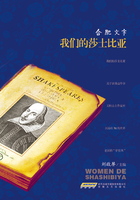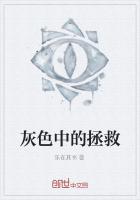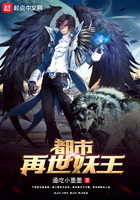Homecoming:Return to the Animal Kingdom—in Pursuit of Ecological Integration
TheSirensofTitan:FlyingwiththeBluebirds
From the analysis of the proceeding chapters, we have come to an understanding that Vonnegut is ruthlessly critical of the contemporary human condition and that animals have played significant roles in bringing up this critique。 Cruelty to animals, dominance over animals, and dependence on animals are pervasive in every aspect of the human experience。By giving visceral deions of all this, Vonnegut lays bare the inhumanity in human nature, the folly of human supremacy, the cruelty of war, the destructive potentials of science and technology, as well as the unbearable loneliness of the postmodern existence as a result of these fragmentizing and alienating forces。Nonetheless, this is still not all animals have done for Vonnegut。They are helpful in one more way—the fulflling of the ideal。
In the famous Playboy interview, Vonnegut expresses his concept of the ideal community:
Human beings will be happier—not when they cure cancer orget to Mars or eliminate racial prejudice or fush Lake Erie but when they fnd ways to inhabit primitive communities。 That's my utopia。That's what I want for me。(CKV 80)
When asked whether the ideal community is people who live nearby and think exactly as he does, Vonnegut gives a further explanation:
No。 That isn't primitive enough。I want to be with people who don't think at all, so I won't have to think, either。I'm very tired of thinking。It doesn't seem to help very much。The human brain is too high-powered to have many practical uses in this particular universe, in my opinion。I’d like to live with alligators, think like an alligator。(CKV 81)
It is always baffing a task, while reading Vonnegut or listening to him, to decide whether he is serious or joking when he makes a proposition, but in this conversation we can be certain about his candidness and sincerity, about his boredom with people and the desire to live a ******r life。 He has described his admiration for his sister's dreams of living with“impossibly friendly animals in impossibly congenial isolation”and on different occasions he shows his gladness that one of her sons has succeeded in ****** her dream come true。Therefore, even the desire“to live with alligators”instead of people means more truth than humor and irony。
The ideal of living in a primitive community in the form of extended families and the repudiation of human supremacy and the reign of rationality that entails too much lying and scheming run through the oeuvre of Vonnegut。 There is always an urge in his novels that the humans should return to the animal state, not in the sense of brutality and barbarity that the animal world is always associated with—which Vonnegut is quite aware to be a faulty and biased assumption humans have about the animals—but in the sense of innocence, simplicity, peace and harmony。In many of his works, Vonnegut expresses the belief that animals are superior to humans in various ways and people would live more happily if they can follow their way of life。
In Sirens of Titan and Galapagos, the utopian visions Vonnegut describes in the Playboy interview are brought to life, although it is not a life with the alligators。 With admirable ingenuity and boldness, besides a big amount of whimsicality, Vonnegut the idealist, humorist, and sentimentalist experiments with the idea about human beings returning to the animal world。The outcome he presents us with is an idyllic picture of peace, contentment, and harmony:Chrono flies freely in company of the big Titanic bluebirds, proverbially known as the symbol of happiness;humans swim and play joyfully and peacefully in the sea like happy seals, worrying nothing about war and politics and oppression, as their huge brains have dramatically reduced in size。
Many critics consider such presentations of the future world as extreme examples of black humor。 While there is indeed playfulness and surrealism in the portrayal of humans as furry seals, I do not think there is sarca**, irony, or despair that pertain to black humor。As a matter of fact, the image of Chrono fying with his feather cape accompanied by the giant bluebirds evokes strong sense of dignity and awe。Likewise, the harmony and contentment that the“fsher people”display in Galapagos is attractive。Besides, both The Sirens of Titan and Galapagos are the apple of Vonnegut's eye。The former is a“natural born”that pleases the motherand the latter is graded by the writer himself a score of excellence。It has to be the affrmative and optimistic mood of the works that delights the author,not something dark and despairing, even though Vonnegut claims to be a pessimist。
In truth, among all of the fourteen novels of Vonnegut, The Sirens of Titan and Galapagos are the most heart-lifting。 Unlike Cat's Cradle, Hocus Pocus, Slapstick and Slaughterhouse-Five, which are marked by futility and absurdity, the two novels offer us affrmative possibilities for the human existence and more direct remedies for the follies and foibles of the way humans live。As Reed notes about The Sirens of Titan, we fnd more open laughter and light-hearted joking in the two novels, but less of the cynical, bitter, hurt chuckling that typify Player Piano and many other later novels(1972:84)。Together with this is the affrmative possibilities offered in both novels, which is another factor that renders them appealing。Shocking and strange as the projections of the human future are, they glimmers with light and hope, as lies in the peace and harmony achieved by the characters in their relationship to the universe, both within and without, both physically and spiritually, both internally, inter-personally, and on the species level。The Sirens of Titan and Galapagos are the only two novels in which the activities of both humans and animals are set in an open, natural environment, instead of the cramped cities。The Edenic Titan and the water-laced Santa Rosalia are the paradises where human beings regain their wholeness and ecological integrity after their long self-exile。
In“Excelsior!We're going to the Moon!Excelsior!”Vonnegut talks about America's successful landing on the moon。 He is far from being excited。He cites Isaac Asimov's theory of American science fction:
Isaac Asimov, who is a great man, perceives three stages so far in the development of American science fction, says we are in stage three now:1. Adventure dominant。2.Technology dominant。3.Sociology dominant。I can hope that this is a prophetic outline of Earthling history, too。I interpret‘sociology'broadly—as a respectful, objective concern for the cradle natures of Earthlings on Earth(WFG 77-89)。
This is precisely the notion that Vonnegut tries to convey to his readers in Sirens of Titan and Galapagos:forget about the space conquest, forget about the power of our huge brain。 Come back down to planet Earth, our cradle and our home。Be respectful。
A route to happiness, Vonnegut seems to be suggesting, is the return to the animal world, both symbolically and physically。 Only when we humans can shake off the illusory halo as the“paragon of animals”,forget about the human supremacy and mastery, and break down the species barrier between us and the rest of the natural world, only when we humans are able to acknowledge our biological selves and the weaknesses as such and realize our status as a common planetary citizen, only when we can recognize the beauty and dignity of all other beings and restore our kinship with them, can we live a healthy and fulflling life, a life at home with ourselves as well as with the natural world。
Assessing the novel in comparison with its predecessor, Player Piano(1952),Peter J。 Reed observes,
Rather surprising[……]is the fact that this novel with its science fction orientation, with its robots and near-robot humans, and with its several central characters who are intentionally presented as being rather cold-hearted, generates more human warmth than Player Piano which is directly concerned with the agonies of exploring and following conscience, emotion and love。(1972:65-66)
Reed offers three possible explanations:that Vonnegut has improvedhis skill in the intervening seven years, that the science fction mode offers
him more detachment and he is less didactic in this work, and that“the positive forces, particularly love, carry more weight”(1972:66)。 I agree with him largely but think the third point deserves more attention than he has allocated。By“love”,Reed means mainly the love of and between the human characters, but I think its connotation is extended from the human sphere to that of the animal world and Vonnegut makes it quite explicit that the accomplishment of spiritual contentment lies in the restoration of the harmony between humans and nature(including both physical nature and human nature),and between humans and other species。This affrmation of the moral extension greatly adds to the book's appeal。
There are two characters in the novel that choose to spend their lives with animals:Boaz and Chrono。 As is explained in Chapter Three, both characters have had unhappy childhood due to the lack of fulflling, supportive family life。Living on a planet that is lifeless and loveless, Boaz becomes mean and cruel, taking advantage of his power as a secret commander to inflict pain on his fellow soldiers just for fun。Chrono is not evil in character, but he is unaccountably aggressive and dangerous, brooding anger for all around him, even including his own mother。However, both characters undergo amazing transformation in their experience with animals, turning from cold, troubled freaks into loving, sympathetic humans。
A。 Boaz
Boaz's transformation begins on the space ship on their way to Mercury。“Lonely and mystifed”out there in space, he has an existential crisis as to the meaning of life and decides that“he needed a buddy far more than he needed a means of ****** people do exactly what he wanted them to”(ST 176,182)。 Even if Unk had not destroyed his control box secretly, Boaz would not have had need of it。The important things in life, he discovers, are“not to be lonely, not to be scared”(ST 182)。But being obsessed with the dream to reunite with his family and friend, Unk neither notices nor offers assistance to Boaz's transformation。It is the harmoniums who fulflled the job, creatures in the caves of Mercury。
Stranded on the alien planet and entombed in its dark, deep, labyrinthine caves—part of Rumfoord's grand scheme—Boaz and Unk take up different roads。 Unk is restless and explorative。He roams the caverns, furiously bent on finding the way out。He is“at war with his environment”,regarding his environment“as being either malevolent or cruelly mismanaged”,and he wants“to fght it with the only weapons at hand—passive resistance and open displays of contempt”。As a result, he suffers physically:“Poor Unk lost a lot of weight, and a lot of hair, too。He was aging fast。His eyes felt hot and his skeleton felt rickety”(ST 200)。Besides, he never shaves, allowing his hair and beard to grow into bushes。In a literal sense, he turns himself into a savage。In sharp contrast, Boaz prospers。He shaves every day and gives himself a haircut twice an Earthling week with a barber kit from the space ship。“Boaz, twelve years younger than Unk, had never felt better in his life。He had gained weight in the caves of Mercury—and serenity, too”(ST 200)。
What accounts for the change in Boaz and the difference between him and Unk is the love he develops for the only creature in the caves—the harmoniums。 Vonnegut's deion of this fctional creature is poetic and touching:
The creatures of the caves are translucent。 When they cling to the walls, light from the phosphorescent wall comes right through them。The yellow light from the walls, however, is turned, when passed through the bodies of the creatures, to a vivid aquamarine。
Nature is a wonderful thing。
The creatures in the caves look very much like small and spineless kites。 They are diamond-shaped, a foot high and eightinches wide when fully mature。
They have no more thickness than the skin of a toy balloon。(ST 185)
Clinging to the cavern walls and fed on the mechanical energy passed through sound vibrations, these creatures are ******, gentle, and excruciatingly beautiful。“Though blind and indifferent to anyone's watching, they often arrange themselves so as to present a regular and dazzling pattern of jonquil-yellow and vivid aquamarine diamonds。 The yellow comes from the bare cave walls。The aquamarine is the light of the walls fltered through the bodies of the creatures”(ST 187)。In effect, the narrator tells us, the name“harmonium”is derived precisely for their“love of music”and“willingness to deploy themselves in the service of beauty”(ST 187)。
It is for such creatures that Boaz develops strong attachment。 When he discovers how much they love good music, he starts to play for them tape-recorded music that are loaded on the spaceship as part of Rumfoord's war provisions, taking great pains to fgure out a proper way to stage the concert so as not to kill the vulnerable harmoniums when the vibration is too strong for them。With the few harmoniums that he especially likes, he feeds them on his own heartbeat and the vibrations of his pulse。He talks to them in the small talk parents have with their babies and imagine them to talk back。The messages the harmoniums spell out on the wall,“BOAZ, DON'T GO!”,and“WE LOVE YOU, BOAZ”renders him so emotionally charged that Unk's news about his discovery of the way to free them from Mercury fail to excite him, for he is not willing to go。
There might seem a certain degree of morbidity and an overload of sentimentality in Boaz's transformation, as some critics tend to think, but Boaz has not lost his mind to assert the love between him and the harmoniums。 He has a philosophy of his own, one obtained from experience。“I don't know what's going on[……]All I know is we're being tested somehow, by somebody or some thing[sic]a whole lot smarter than us, and all I can do is be friendly and keep calm and try and have a nice time till it's over”(ST 202)。This attitude is almost exactly the same as the lesson Constant learns by the end of his life, that“a purpose of human life, no matter who is controlling it, is to love whoever is around to be loved”(ST 313)。However, it takes much longer time for Constant to realize it。In the caves of Mercury, Unk-Constant regards what Boaz is doing as“dumb or crazy”and is always under the urge to“truth”him about the harmoniums, that it is senseless to believe the“brainless membranes”to know anything about love, that they are only a trap to keep him on Mercury(the omnipresent Rumfoord uses the harmoniums to spell out messages so that Unk would return to Earth alone)。Boaz, knowing well that Unk hates the harmoniums and derides his obsession with them as well as the possibility that somebody might be behind all this, pleads Unk not to disclose the cruel truth:
“I'd appreciate it, Unk,”said Boaz tautly,“if you'd just let me think whatever I'm going to think about that message about how they love me。 I mean—”he said,“you know—”he said,“it don't necessarily have to make sense to you。I mean—”he said,“you know—”he said,“there ain't really any call for you to say anything about it, one way or the other。I mean,”he said,“you know—”he said,“these animals ain’t necessarily your dish。You don’t necessarily have to like’em, or understand’em, or say anything about’em。I mean—”said Boaz,“you know—”said Boaz,“the message wasn’t addressed to you。It’s me they said they loved。That lets you out。”(ST 210)
Apparently, Boaz is overwhelmed with emotion and excitement that he loses his tongue。 But he does succeed in ****** an impressive declaration of his determination to believe in the harmoniums。Growing up as an orphan and kidnapped to Mars at the age of fourteen, Boaz hasnever experienced love。Now that he fnds it in the harmoniums, he clings to it and will not let it go at any price。Meanwhile, in the stammering and the struggle for expression, he also succeeds in putting under control his own urge to disclose the truth he has for Unk:Unk's strangling Stony Stevenson, his best and only friend on Mars, in a moment of amnesia under the control of Martian commanders。The belief that Stevenson is still alive waiting for the reunion with him is the dream that keeps Unk going。Telling him the truth will be like“clubbing Unk between the eyes”(ST 202)。On Mars Boaz would never let go of such good chance of pleasing himself in watching the intense pain he can produce in others, but after the two-and-a-half year experience with the harmoniums, the former sadist tormentor has changed into a much more sympathetic and humane character。He understands that people need dreams to live on, no matter how silly or false they are。So he invents the plea with Unk,“Don't truth me, and I won't truth you”(ST 202)。Even though, as it turns out, Unk breaks the plea, Boaz withholds the impulse to do likewise for revenge。The love for the animals has its effect:the emotional wasteland that Boaz used to live in is nurtured into a verdant garden flled with mellowness and warmth。
Peter Reed calls Boaz“a classic example of‘****** the best of things'”to adapt to a meaningless universe(1972:76),but he considers Boaz's choice to stay with the harmoniums as an act of regression(the Mercury caves does resemble the womb)and his adjustment one of mere submission(1972:77)。 I see it otherwise。The decision to stay reveals, instead of submission and emotional perversion, Boaz's growth into a full, responsible, and compassionate human being。Boaz has learnt to take full charge of his own life。In a moment of rapture when he argues with Unk about the value of the harmoniums'love, Boaz forgets about the tape recorder and leaves it unattended。When he realizes it, it is already too late。Thousands of harmoniums are killed by moving too close to the tape recorder。Boaz is weeping when he comes back。“See what happens when somebody just runs off and forgets?”He rages heartbrokenly against himself(ST 212)。It is then that he tells Unk his decision to stay to take care of the harmoniums instead of leaving with Unk back to Earth。He has a more rational reasoning this time and is apparently more confdent and eloquent:
“And then I said to myself,”said Boaz,“I ain't never been nothing good to people, and people never been nothing good to me。 So what I want to be free in crowds of people for?[……]I found me a place where I can do good without doing any harm, and I can see I'm doing good, and them I'm doing good for know I'm doing it, and they love me, Unk, as best they can。I found me a home。
“And when I die down here some day,”said Boaz,“I'm going to be able to say to myself,‘Boaz—you made millions of lives worth living。 Ain't nobody ever spread more joy。You ain't got an enemy in the Universe。”(ST 213-14)
This is clearly not a speech made by a helpless and pathetic victim of the fortune's wheels。 On the contrary, it is full of dignity and the spirit of altruism, something Rumfoord claims to possess but only as disguise for his selfsh ends。There might be a similar kind of assertion and self-delusion in Boaz's belief of doing good to others, but by comparison to Rumfoord's callous manipulation of people's lives in the name of great causes, Boaz is much nobler。If he does hurt anyone, it is himself。As a matter of fact, in Boaz's rejection to“return to the madding crowd”we see the shadow of Vonnegut who would rather live with alligators than with people。Boaz, of course, has more reason than Vonnegut to make this choice, considering the life he has lived as an orphan, pushed and pulled by people around him this way or that。In contrast to the treatment from people, he obtains uncritical love from the harmoniums and complete dependence and trust, which, in return, renders his life meaningful and worth living。
There is no indication of ridicule or pity, therefore, in the tone of the narrator when he says,“Boaz became for himself the affectionate Mama and Papa he'd never had,”who imagine himself dying on the deathbed and calling himself“a good boy”(ST 214)。 By portraying Boaz talking to himself at his imagined deathbed, the narrator concludes the episode of Mercury with a note of melancholy as well as laudatory evaluation。It is certain that Boaz will die alone in this alien planet, but he will die contented, believing himself dedicated to the good of the harmoniums。As in the case of Constant's discovery about the meaning of life, Boaz lives out also the principle that Beatrice discovers much later on Titan:the worst that could possibly happen to anybody would be not to be used for anything by anybody(ST 310)。As a matter of fact, Boaz's experiences add modifcation to it。He has been used by people all his life, but unconsciously and purposelessly;it is the life with the harmoniums that enables him to make a voluntary and conscious decision as to whether and how to be used。
The narrator gives full deions of Unk's amazement at Boaz's dignifed change both physically and spiritually:“Living apart from Boaz, Unk had fattered himself into thinking he was a physical match for Boaz。 He saw now what a pathetic delusion this had been”(ST 210)。When Boaz returns with the dead bodies of the killed harmoniums, heartbroken, he is to Unk“a wise, decent, weeping, brown Hercules”。Indeed, Unk is so dwarfed emotionally and spiritually that he feels himself“scrawny, rootless, and sore-headed”(ST 212)。When Unk wants to protest Boaz's decision not to go with him,“Boaz held up his big right hand, and it was a tender gesture for silence, a gesture made by a thoroughly great human being”(ST 212)。All of this is unequivocal expression of admiration。Therefore, Boaz is Vonnegut's example of positive values instead of a butt of ridicule。His love for the fragile, vulnerable, harmless animals ranks him among the Greek heroes。That critics fail to see this or are reluctant to acknowledge it as signifcant is a revealing fact about the blind spot in the mainstream literary studies in regard with the animal part。
B。 Chrono
If the dark, poisonous, and phosphorescent atmosphere in the Mercury caves gives off a sense of morbidity that undercuts the heroic transformation of Boaz, the open, bright, and balmy environment on Titan sets off that of Chrono much more positively。
Vonnegut's deion of Titan is alluring:it is rich in oxygen and the atmosphere is redolent,“like the atmosphere outside the back door of an Earthling bakery on a spring morning”(ST 265)。 The climate is also spring-like, with a“uniform air temperature of sixty-seven degrees Fahrenheit”(ST 265)。Moreover, the place is graced with a variety of natural wonders, including lovely rivers, lakes, and streams(all of which Rumfoord egotistically named after himself and his dog)and a view of“the most appallingly beautiful things in the Solar System, the rings of Saturn”(ST 266)。In short, Titan is a place of natural beauty and harmony。It suggests of primitive union with nature and ****** pastoral dignity。According to Mustazza, the deion“is meant to summon up visions of an Edenic locus and way of life”(1990:55)。
On this pleasant planet, all three of the family, Constant, Beatrice, and Chrono, eventually learn to come to terms with life。 Although Rumfoord discloses to them the disheartening truth that the history of Earth has been determined largely by beings of Tralfamadore, who simply want to help one of their space travellers, Salo, to repair his spaceship, they choose to fnd meaning of their own, but from within, not without。Beatrice resumes her hobby as an artist, writing a history called The True Purpose of Life in the Solar System, in refutation to Rumfoord's notion that“the purpose of human life in the Solar System was to get a grounded messenger from Tralfamadore on his way again”(ST 308)。By the end of her life, although she has become a“springy, one-eyed, gold-toothed, brown old lady”of seventy-four, her beauty shines all the more charmingly。“To anyone with a sense of poetry, mortality, and wonder, Malachi Constant's proud, high-cheekboned mate was as handsome as a human being could be”(ST 307)。Beautiful and noble as is the“immaculate girl in white”that Beatrice used to be, she is too aloof to possess human warmth。On Titan, even though she has lost her war against the forces that are meant to contaminate her purity, Beatrice enjoys a higher sense of nobility and strength and become fully human。The discovery that the meaning of life lies in being of use to someone liberates and satisfes her。She dies in peace, after expressing her sincere gratitude to Constant for his willingness to“use”her, looking up at the appallingly beautiful rings of Saturn(ST 311)。
Constant is no longer the ******* lost in material comforts and sexual indulgence as well。 Nor is he the bitter, angered man desperate in his fght against a merciless universe as on Mars。The Sirens of Titan, three extremely beautiful women with whose pictures Rumfoord allures Constant for the life on Titan and which indeed are statues Salo sculpts to kill his time, has long lost any charm or infuence to him。Moving around naked most of the time, Constant has become a happy, loving family man, a self-suffcient man who“raised or gathered or made everything he needed”and this“suites him enormously”(ST 307)。In his relation with Beatrice, he plays somewhat the feminine role—every time he visits her, he would bring her native foods and homemade delicacies as well as“his broom and shovel”to clean up the mess Beatrice has accumulated writing in her palace。He is perfectly contented with his role as a“woodsman”,“husbandman”,and“a provider”(ST 307)。The winning of Beatrice's love, although it happens quite late in his life, means a great deal to him。It mellows him and brings meaning to his life。“A purpose of human life,”he confesses to Salo after Beatrice's death,“no matter who is controlling it, is to love whoever is around to be loved”(ST 313)。
While his parents eventually find peace and love with themselves, Chrono fnds it with the bluebirds。
At the age of 17,young Chrono had run away from his palatial home to join the Titanic bluebirds, the most admirable creatures on Titan。 Chrono now lived among their bests by the Kazak pools。He wore their feathers and sat on their eggs and shared their food and spoke their language。(ST 304)
There is no explanation in the book as to what prompts Chrono to make such a decision of life, but there is an explicit commendation for the choice。 Beatrice says to herself, in spite of the great depression of losing her only child,“At least[……]he isn't a mama's boy。And at least he had the greatness of soul to join the noblest, most beautiful creatures in sight”(ST 306)。Constant takes to tidying up the shrines the son makes with rocks and sticks and the bluebird feather as his holy duty, fully respectful of“what his son was trying to do with religion”(ST 305)。Both Beatrice and Constant think at the beginning of their life on Titan that they should send their son back to Earth, to“live that life with busy and jolly contemporaries on Earth”(ST 304),but after Chrono joins the bluebirds, they agree that“it would have been cruel in the extreme to send him anywhere else”nowthat he has made“such a thorough and specialized adjustment on Titan”(ST 304)。Even Salo the robot sees the appeal of Chrono's act。“‘Good for him,'”he said,“‘I'd join them, if they’d have me”(ST 314)。From a dishearteningly aggressive, cynical, and unfeeling boy, Chrono has grown into a young man capable of appreciating the gift of life, by aligning himself with the most beautiful creatures available。As Reed points out,“In the circumstances he makes perhaps the best choice available”(1972:83)。
In the choice to spend his life with animals instead of people, Chrono resembles Boaz。 In both cases, there is a conscious selection between the human society and the animal world。Boaz's experiences with people tell him that he can never live a life of his own, nor can he enjoy love or respect;similarly, Chrono's experience on Mars, short as it is, is appalling enough for him to doubt any illusion of happiness or ******* in the human society。After he has gone with the bluebirds, he continues to pay surprise visits to his mother, trying to behave in accordance with the human civilization, but at the end of such a day, all efforts of conformity invariably end in exasperation:“Chorno would rage at the clothes and his mother and civilization。He would tear off the clothes, scream like a bluebird, and dive into the Winston Sea”(ST 306)。It seems that he does want to please his mother, but the trammels of human civilization are simply more than he can endure for a full day。Therefore, like that of Boaz, Chrono's decision to join the bluebirds is not out of whimsy or impish impulse, but of deliberate consideration。
On the other hand, Chrono's choice differs signifcantly from that of Boaz。 Boaz decides to stay with the harmoniums primarily on basis of the assumption that the creatures depend on him and he could be of value to them, thus there is lingering implication of superiority on the part of Boaz。He occasionally flatters himself as“God Almighty”to the harmoniums and imagine them calling him“King Boaz”to plead his favor(ST 201,204)。Therefore, the relationship between Boaz and the harmoniums is not one of equal footing, although Boaz means no harm by his power。In the case of Chrono, everything speaks of spontaneity and wholesomeness。Chrono joins the birds, speaks their language, eats their food, and fies in their company, on his own feather cloak instead of on the back of a leading bird, as often is the case in many fairy tales。In brief, what Chrono tries to do is to become one of them, by following their way of life, instead of humanizing the birds and bringing them closer to his life。The age-old and deep-rooted human supremacy in dealing with other species is entirely abolished in Chrono's case。Especially revealing is the abandoning of the human language。As early as his life on Mars, young Chrono has intuitively discovered that“everything anybody says is baloney”(ST 145)。
So he trusts no one, not even his mother and Unk, who tells him to be his father。So it is not surprising that on Titan, he eventually determines not to use the human language any more。Unlike Boaz who talks to the harmoniums in human words, Chrono adopts the language of the bluebirds。Sometimes late at night, the narrator tells us, Constant would hear Chrono's cries。The cries are“for nothing and nobody on Titan。They were for Phoebe, a passing moon”(ST 304)。The quality of primitivism and mysticism is troublingly beautiful。The deion is made about the time when Chrono is forty-two。In the twenty-fve years he spends with the bluebirds, he has completed his reunion with nature and become part of its elements。As Constant admits,“It was all so sad。But it was all so beautiful, too”(ST 305)。
Typographically, while Boaz lives in the deep cave, Chrono fies with the beautiful birds in the sky。 The former is enclosing, downward, while the latter embracing, outreaching, and uplifting。Clearly, Chrono's joining the bluebirds, which in traditional belief are symbols of happiness, is more liberating and suggests more hope and possibilities。
The scene of Chrono's farewell to his parents is poignantly moving and mythically evocative。 At the death of Beatrice,“the sky was flled with Titanic bluebirds”。There are so many of the great and noble birds that they“made night of day, made the air quake with their beating wings”(ST 312)。
And in that night in the midst of day, Chrono, the son of Beatirce and Malachi, appeared on a knoll over-looking the new grave。 He wore a feather cape which he fapped like wings。
He was gorgeous and strong。
“Thank you, Mother and Father,”he shouted,“for the gift of life。 Good-bye!”
He was gone, and the birds went with him。(ST 312)
It is amazing and reassuring that, in spite of his appalling childhood and his anti-humanistic choice of life, Chrono is still able to be grateful and appreciate the gift of life。 This is signifcant in that, although Vonnegut expresses his ideas of anti-humanism in the portrayal of Chrono, he does not mean to negate humanity wholesale。Chrono's love for his parents, his gratefulness and appreciation for their bringing him to the world, announces Vonnegut's faith in the core of huminity:love and the value of life。By fguring Chrono fying with the bluebirds to bid his farewell, on the other hand, Vonnegut elucidates the truth that humans and animals share these virtues together。
Thus, among the fve characters of Sirens of Titan, two of them choose to stay with the animals。 Although one is more preferred to the other, both are portrayed in positive light。The message is definite:humans can live a happier life if they restore their kinship with other species。Moreover, throughout the novel, with the help of the science fiction tropes, the characters are made to travel from one planet to another。This in effect literalizes an important notion in the Vonnegut's belief system—planetary citizenship。It is made explicit by creating this grand cosmic context for the human activities that human beings, or in Vonnegut's choice of words, Earthlings, are nothing but one species on one of the millions of planets in the vast universe。There is nothing to be self-conceited about。The belief that“somebody up there likes me”is but a self-deluding lie。Salo's much more sophisticated spaceship offers a good case in point to deflate any pomposity。
Therefore, in Sirens of Titan, there is both the merciless disclosure of the truth about the human mediocrity in the universe and the heartening prospect that humans can maintain dignity and enjoy fulfillment, only if they can forget about the“baloney”about the human supremacy and God-like mastery and restore their kinship with other species。 The choice is on us。As Beatrice has insightfully concluded, although there is little denying that we live under the control of some superior forces, we can serve their interests in“highly personalized”ways(ST 309)。














